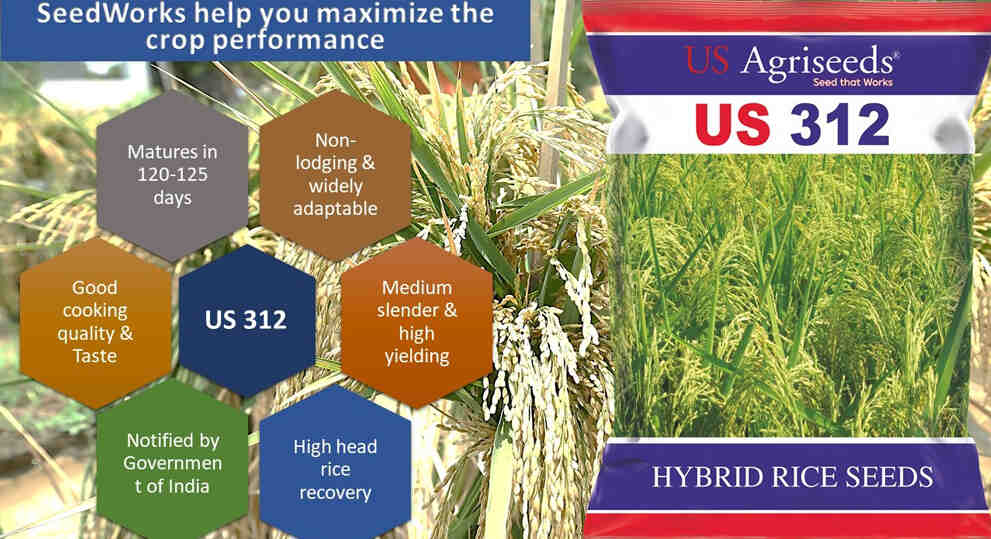India's agricultural landscape has undergone significant transformations over the past few decades, driven largely by technological advancements and innovative practices. One of the most impactful developments has been the rise of hybrid rice seed companies in India. These companies have played a crucial role in enhancing rice production, improving food security, and providing livelihoods for millions of farmers. This blog explores the impact of hybrid rice seed companies on India's agriculture through various facets, including their role in increasing yields, improving crop resilience, and the challenges they face.
Understanding Hybrid Rice Seeds
Hybrid rice seeds are developed by crossbreeding two different rice parent lines to produce a new variety that exhibits superior traits. These traits often include improved yield potential, disease resistance, and adaptability to varying climatic conditions. The introduction of hybrid rice seeds has revolutionized rice cultivation in India, allowing farmers to achieve higher yields and more efficient farming practices.
The Rise of Hybrid Rice Seed Companies in India
The emergence of hybrid rice seed companies in India can be traced back to the 1990s when the Indian government encouraged research and development in agricultural biotechnology. Several private companies began to invest in hybrid rice seed production, leading to the commercialization of high-yielding varieties. Today, numerous hybrid rice seed companies in India operate across the country, catering to the diverse needs of farmers and contributing to the overall growth of the agricultural sector.
Boosting Yields and Food Security
One of the most significant impacts of hybrid rice seed companies in India is the remarkable increase in rice yields. Traditional rice varieties often produce lower yields due to factors like pests, diseases, and climate variability. In contrast, hybrid varieties have shown the potential to increase yields by 15-30%. This increase is vital for ensuring food security in a country where rice is a staple food for a large portion of the population.
Enhancing Crop Resilience
With climate change posing significant challenges to agriculture, the resilience of crops has become a critical focus for farmers. Hybrid rice seed companies in India have developed varieties that are more resistant to abiotic stresses such as drought, flood, and salinity. These resilient hybrid varieties enable farmers to adapt to changing climatic conditions, reducing the risk of crop failure and enhancing their overall productivity.
Economic Benefits for Farmers
The adoption of hybrid rice seeds has resulted in considerable economic benefits for farmers. Higher yields translate into increased income, which can improve the livelihoods of farming families. Additionally, many hybrid rice seed companies provide training and support services to farmers, helping them optimize their farming practices and maximize their profits. This holistic approach not only boosts productivity but also empowers farmers to make informed decisions.
The Role of Government and Policy Support
Government policies have played a crucial role in the growth of hybrid rice seed companies in India. Initiatives aimed at promoting agricultural research, providing subsidies for seed production, and facilitating access to credit have fostered an environment conducive to the expansion of the hybrid rice market. Furthermore, government support for agricultural extension services has helped disseminate information about the benefits of hybrid rice seeds, encouraging more farmers to adopt these varieties.
Challenges Faced by Hybrid Rice Seed Companies
Despite their numerous advantages, hybrid rice seed companies in India face several challenges. The high cost of hybrid seeds can be a barrier for smallholder farmers, who may struggle to afford them. Additionally, there is a lack of awareness and understanding among some farmers regarding the proper management and cultivation of hybrid varieties. Addressing these challenges is essential for ensuring that the benefits of hybrid rice seeds reach all segments of the farming community.
Future Prospects for Hybrid Rice Seed Companies
The future of hybrid rice seed companies in India looks promising, driven by continued research and development efforts. Innovations such as biotechnology and genetic engineering are expected to lead to the development of even more resilient and high-yielding rice varieties. Additionally, the increasing demand for food due to population growth and changing dietary preferences will further fuel the need for enhanced rice production.
The Importance of Sustainable Practices
While hybrid rice seeds have proven to be beneficial, it is essential to integrate sustainable agricultural practices to maximize their impact. Companies and farmers must focus on soil health, water management, and the use of environmentally friendly pest control methods. By adopting sustainable practices, the positive effects of hybrid rice seeds can be amplified, ensuring long-term productivity and environmental health.
Conclusion
Hybrid rice seed companies in India have significantly impacted the country's agricultural landscape by boosting rice yields, enhancing crop resilience, and improving the livelihoods of farmers. However, it is crucial to address the challenges faced by these companies and promote sustainable agricultural practices to ensure the long-term success of hybrid rice cultivation. As India continues to navigate the complexities of agricultural production, the role of hybrid rice seed companies will remain pivotal in driving food security and economic development. The journey towards a more prosperous and resilient agricultural sector is ongoing, and the contributions of hybrid rice seed companies will undoubtedly be at the forefront of this transformation.






Comments